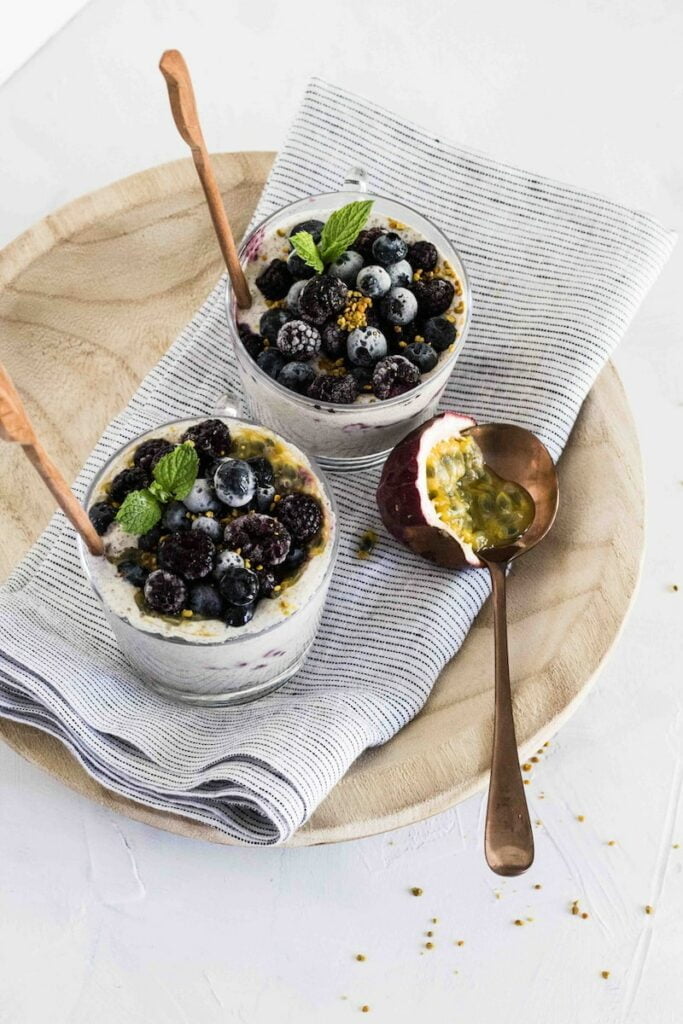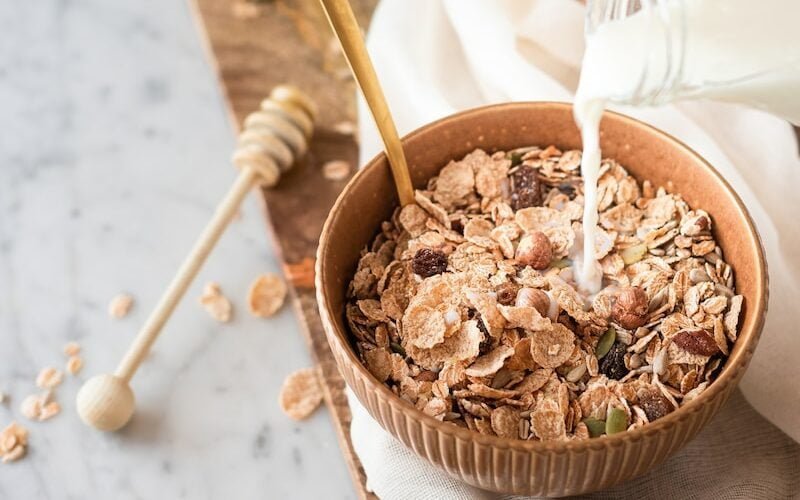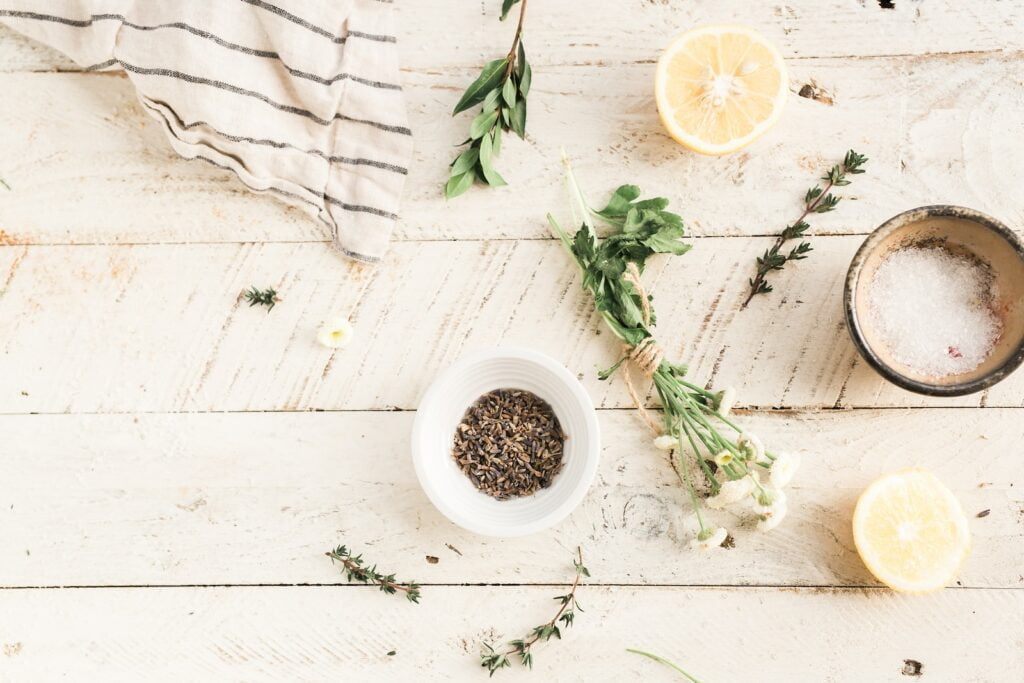A Delicious Plate of Mental Health from Your Kitchen- and the brain behind it all

The joy of cooking is a wonderful feeling that comes from preparing delicious and nutritious meals for yourself and others. Cooking allows you to express your creativity, experiment with surprising ingredients and pots and pans, and bring joy to others through the shared experience of a meal.
Mental health is as important as physical health and stress, anxiety and depression have become a constant of our daily life. However, there are simple ways to prevent poor mental health, and one of them is through allowing more joy in your routine. A healthy and balanced diet can have a positive impact on your mental well-being.
Mental health affects every aspect of our lives, from our stamina to our relationships and reason of being. While seeking professional help is important, we can also make small changes in our daily routine to protect our mental health. In this article, we hope to inspire you to explore foods that can boost your mood, reduce stress and benefit your mental well-being.

The Gut-Brain Connection
The gut and the brain are intimately connected, and research has shown that what we eat can have a significant impact on our mental health. The gut produces neurotransmitters, which are chemicals that regulate mood, emotions, and behavior. These neurotransmitters are similar to those found in the brain, which is why the gut is often referred to as the “second brain.
The gut-brain connection is complex and involves a variety of pathways, including the enteric nervous system, which is a network of neurons that control digestion and other gut functions. These neurons communicate with the brain via the vagus nerve, a large nerve that runs from the gut to the brainstem.
Recent studies have shown that the food we eat can directly impact our gut microbiota, which is the community of microorganisms that live in our digestive tract. These microorganisms play a crucial role in regulating gut function and have been shown to influence mood and behavior.
In particular, diets high in sugar, processed foods, and saturated fats have been linked to an increased risk of depression and other mental health issues. On the other hand, diets rich in whole foods, fruits, vegetables, and healthy fats have been shown to have a protective effect on mental health.
In addition, research has shown that certain foods, such as fermented foods and probiotics, can help to promote a healthy gut microbiota and improve mental health. These foods contain beneficial bacteria that help to regulate gut function and improve immune function, which can have a positive impact on mental well-being.
The gut-brain connection is a complex and dynamic system that plays a crucial role in our mental health. The food we eat can have a direct impact on our gut microbiota and the production of neurotransmitters that regulate mood and behaviour. By eating a healthy, balanced diet that supports gut health, we can promote optimal mental well-being and improve overall quality of life.

Foods that boost your mental health
In addition to the pleasure of creating delicious meals, cooking can also have a positive impact on your mental health. Studies have shown that the act of cooking can have a calming effect on the brain, reducing stress and anxiety.
When you cook, you’re engaging in a mindful activity that requires your full attention. This can help you to stay present in the moment, instead of dwelling on past or future worries. In addition, the process of cooking can be incredibly meditative, as you focus on the sounds, smells, and sensations of the food as it cooks.
Cooking can also boost your mood by increasing the production of feel-good neurotransmitters like dopamine and serotonin. These chemicals are associated with feelings of pleasure and happiness, and can help to alleviate symptoms of depression and anxiety.
Furthermore, cooking can also promote a sense of accomplishment and self-esteem. When you prepare a meal from scratch and it turns out well, you can feel proud of yourself for having created something delicious and nutritious. This can help to boost your confidence and overall sense of well-being.
Cooking is a fun and enjoyable and it can also have a positive impact on your mental health. By engaging in the creative process of cooking, you can reduce stress and anxiety, boost your mood, and increase your sense of accomplishment and self-esteem. So why not start cooking today and experience the joy and mental health benefits for yourself?
- Dark Chocolate: Dark chocolate is high in antioxidants and can boost serotonin levels in the brain, which can help improve mood.
- Fatty Fish: Fatty fish, such as salmon, sardines, and tuna, are rich in omega-3 fatty acids, which can reduce inflammation and improve brain function.
- Berries: Berries are rich in antioxidants, which can reduce inflammation and improve cognitive function.
- Nuts: Nuts are a great source of healthy fats, which can improve brain function and reduce inflammation.
- Leafy Greens: Leafy greens are rich in vitamins and minerals that can reduce inflammation and improve brain function.
- Eggs: Eggs are a great source of protein and contain choline, which can improve memory and cognitive function.

Foods That Reduce Stress
- Chamomile Tea: Chamomile tea is known for its calming properties and can reduce anxiety and stress.
- Turmeric: Turmeric contains curcumin, which has anti-inflammatory properties and can reduce stress.
- Oatmeal: Oatmeal is a great source of complex carbohydrates, which can increase serotonin levels in the brain and reduce stress.
- Avocado: Avocado is rich in healthy fats and can reduce stress and anxiety.
- Fermented Foods: Fermented foods, such as kimchi and sauerkraut, contain probiotics that can improve gut health and reduce stress.
Incorporating these foods into your diet can have a positive impact on your mental health. While diet alone may not be a solution for mental health problems, it can be a part of a holistic approach to improving mental well-being.

Mental Health boost-jump start with a healthy breakfast
Now that we’ve covered some foods that can boost your mood and reduce stress, let’s explore how you can incorporate them into your diet.
A healthy breakfast is essential for starting your day on the right foot. Some breakfast options that can boost your mental health include:
- Oatmeal with berries and nuts
- Yogurt with berries and granola
- Avocado toast with eggs

Snack on Nuts and Berries
Nuts and berries are great snacks that can boost your mental well-being. Some examples include:
- Almonds, walnuts, and cashews
- Blueberries, raspberries, and blackberries
Add Fatty Fish to Your Diet
Fatty fish are not only great for your physical health, but they can also boost your mood. Some ways to incorporate fatty fish into your diet include:
- Grilled salmon with leafy greens
- Tuna salad with avocado
- Sardines on whole grain toast
Incorporate Leafy Greens into Your Meals
Leafy greens are packed with vitamins and minerals that can benefit your mental health. Some ways to incorporate them into your meals include:
- Spinach in omelettes or smoothies
- Kale salad with nuts and berries
- Broccoli stir-fry with brown rice
Drink Chamomile Tea Before Bed
Chamomile tea is known for its calming properties and can help you relax before bed. Try drinking a cup before bed to improve your sleep and reduce stress.
The Bottom Line
Incorporating mental health-boosting foods into your diet can have a positive impact on your mental well-being. However, it’s important to remember that diet alone may not be enough to improve mental health. It’s important to seek professional help if you are struggling with mental health problems.
Remember to always prioritize your mental health and take care of yourself in all aspects of your life.

FAQs
- Can supplements be used to boost mental health?
- While supplements can be beneficial, it’s important to consult with a healthcare professional before taking any supplements to ensure they are safe and effective for you.
- Can alcohol affect mental health?
- Yes, excessive alcohol consumption can have a negative impact on mental health.
- Can stress be managed through diet and exercise alone?
- While diet and exercise can help manage stress, it’s important to seek professional help if stress becomes overwhelming or chronic.
- Can certain foods worsen mental health?
- Some studies suggest that highly processed and sugary foods may have a negative impact on mental health, but more research is needed in this area.
- Are there any foods that should be avoided for mental health?
- While there are no specific foods that should be avoided for mental health, it’s important to eat a balanced diet and limit highly processed and sugary foods.





